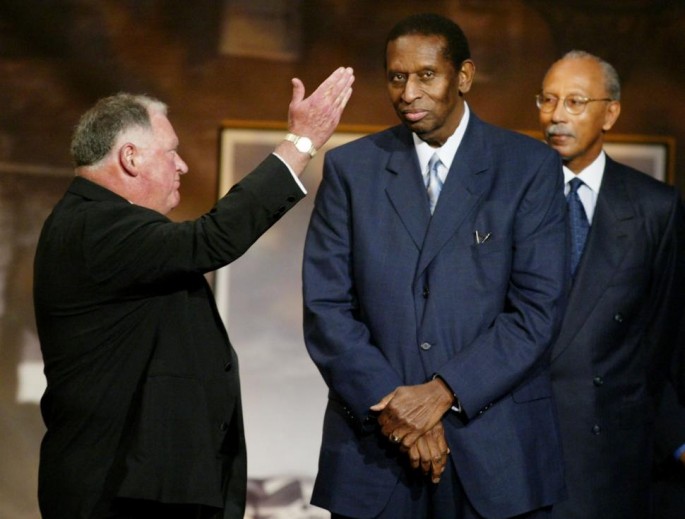Earl Lloyd, the first African-American player to play during an NBA game, passed away on Feb. 26, Thursday. The 86-year-old Lloyd became one of the first three black players to enter the NBA, in 1950.
One of the other players was Chuck Cooper, who was the first African-American who an NBA team (Boston Celtics) drafted. The Washington Capitols picked Lloyd seven rounds later.
Lloyd's pick was followed by the New York Knicks' selection of ex-Harlem Globetrotter player Nat "Sweetwater" Clifton, the first black player to sign a full contract in the NBA.
While Cooper and Clifton both earned firsts in the NBA. However, on Oct. 31, 1950, Lloyd became the first African-American player to actually play in the NBA.
In that game against the Rochester Royals, Lloyd scored six points for the Capitols and grabbed 10 rebounds. Less than one week later, Cooper and Clifton also played in their first games in the NBA.
Lloyd was born on April 3, 1928, in Alexandria, Virginia. While attending West Virginia State College, he led his team to an undefeated season in 1947-48.
At West Virginia State the nickname Lloyd received was "Moonfixer." As a freshman the seniors had given Lloyd the impossible task of keeping the moon shining when seniors were with their girlfriends, according to Yahoo.
Ironically, Lloyd's becoming the first African-American player to get playing time in the NBA was not "trending" when it happened. For example, in its game story the Rochester Democrat & Chronicle did not even include Lloyd's name!
Lloyd recalled some racist experiences he had while playing in the NBA. For example, fans would often use the "N-word" to refer to him.
However, Lloyd commented in a 2009 interview that he used anger management to cope with the situation. He also was against the idea of quitting.
Lloyd had a fantastic NBA career. He played 560 regular -season games in the NBA, and averaged 8.4 points, according to Time.
In 2003, Lloyd was inducted into the Naismith Memorial Basketball Hall of Fame. He referred to it as the highest honor he had ever received.



























